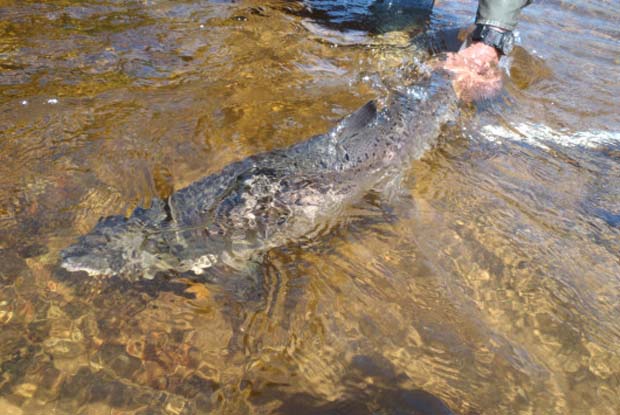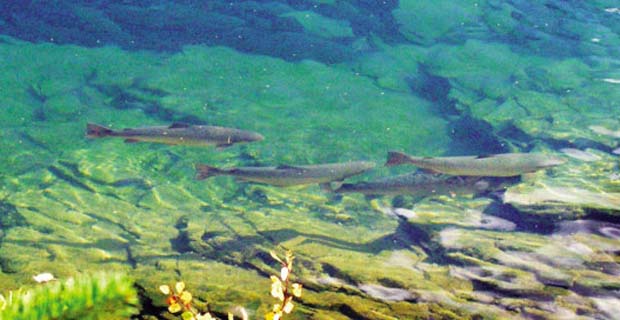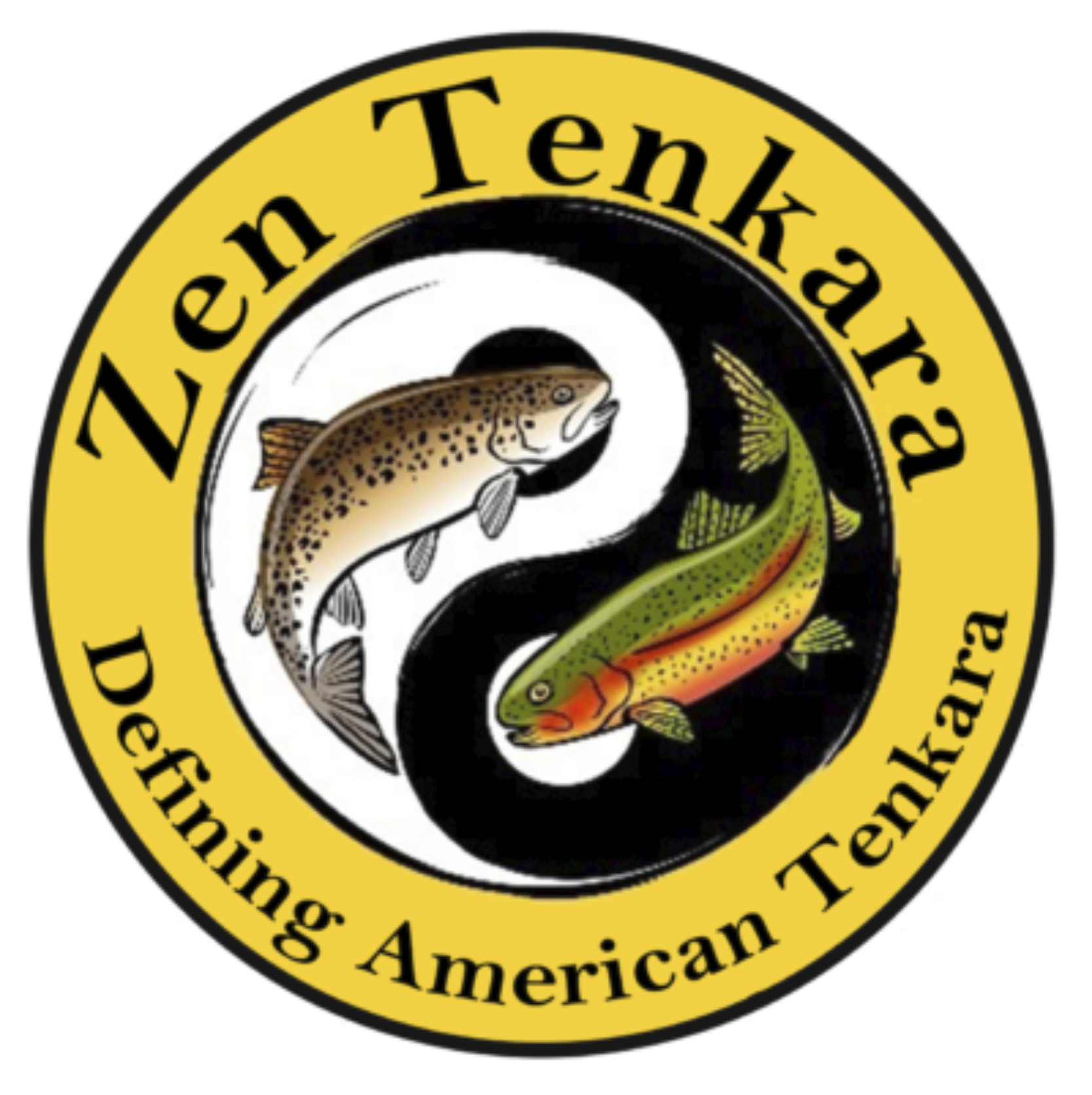Atlantic salmon numbers are way down from their historic highs of colonial days due to man interrupting the migrations with dams, indutrial pollution, overfishing, and human encroachment. However, organizations like the Atlantic Salmon Federation have been able instrumental in establishing protective procedures and convincing lawmakers to act so that fisheries in the Northeast provinces of Canada and Maine in the United States are performing better.
Open net-cage Atlantic salmon aquaculture has given us affordable salmon at the register, but is there a hidden price to pay?
The present Atlantic salmon aquaculture practice is to anchor ocean net-cage pens in near shore waters of the Atlantic coast. It is a practice (worldwide) that has proven to be greatly flawed and fraught with unfixable problems. Problems that not only effect the penned salmon (sea lice, chemical treatments, antibiotic use, disease), and wild fish getting genetically infected and the near shore water quality and sea floor habitats getting polluted to death, but you.
Open net-cage salmon farming is currently one of the most harmful aquaculture production systems and poses environmental threats in all regions it is practiced. It is a direct and real threat to commercial fishing nearby waters.
Nova Scotia Salmon farmed on land brought to market. The company, Sustainable Fish Farming has spent eight years developing tank system
By Shaina Luck, CBC-NEWS – Nova Scotia / Sep 15, 2015
[dropcap]A[/dropcap] Nova Scotia company that’s spent eight years developing a system to farm fish in large tanks on land says it’s finally ready to bring its locally-raised Atlantic salmon to market.
The company, Sustainable Fish Farming, has a farm close to the Bay of Fundy in Centre Burlington. The facility works on a closed-containment system that recycles all saltwater in the salmon tanks, while waste is drawn out and used as fertilizer.
The salmon are fed organic fish food, and since the farm carefully controls any contaminants that enter the tanks, it is not necessary to give the fish antibiotics.
The salmon are marketed under the brand name Sustainable Blue, and the fish and their waste do not have any contact with the ocean.
“Next week we begin to sell our first Atlantic salmon to the market, and that really marks the start of continuous production,” said Kirk Havercroft, CEO of Sustainable Fish Farming.
Havercroft said salmon will be sold to restaurants and fish brokers in Nova Scotia, and to a small broker in Toronto that specializes in sustainable products.
Some of the places that will carry Sustainable Blue salmon include Le Caveau Restaurant in Wolfville, Pete’s Frootique in Bedford and Halifax, and Evan’s Fresh Seafoods at Alderney Landing in Dartmouth.
Sustainable Fish Farming has been developing the closed-containment technology since 2007.
“It feels like finally, all of that effort is being rewarded,” Havercroft said.
In March 2014, Sustainable Blue suffered a serious setback. Due to an electrical power failure in the night, the entire crop of nearly mature salmon died.
At the time the farm was preparing to send fish to market. The company tried to figure out what happened and called in RCMP to investigate the possibility of sabotage.
The company and police never found an adequate reason for the power failure, but Sustainable Blue decided to re-stock with another batch of fish.
“We were determined to get there. So this is a really exciting time,” Havercroft says. “It feels extremely rewarding now to see our product finally go to market.”
‘It went over very well’
Read complete story here . . .
NOTE: Featured Image credit: Release of large Atlantic salmon on Godbout River, QC, 2012 (photo ASF)
Join the Atlantic Salmon Federation and stay in the know on all things salmon in Canada’s pristine coastal provinces and Maine, USA.








